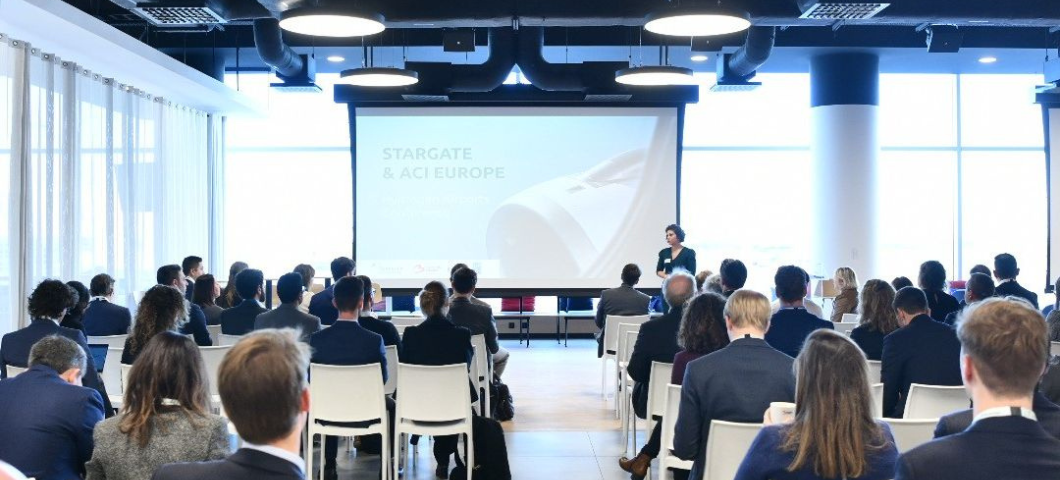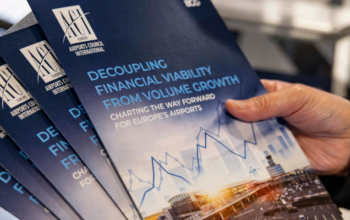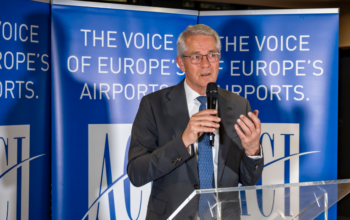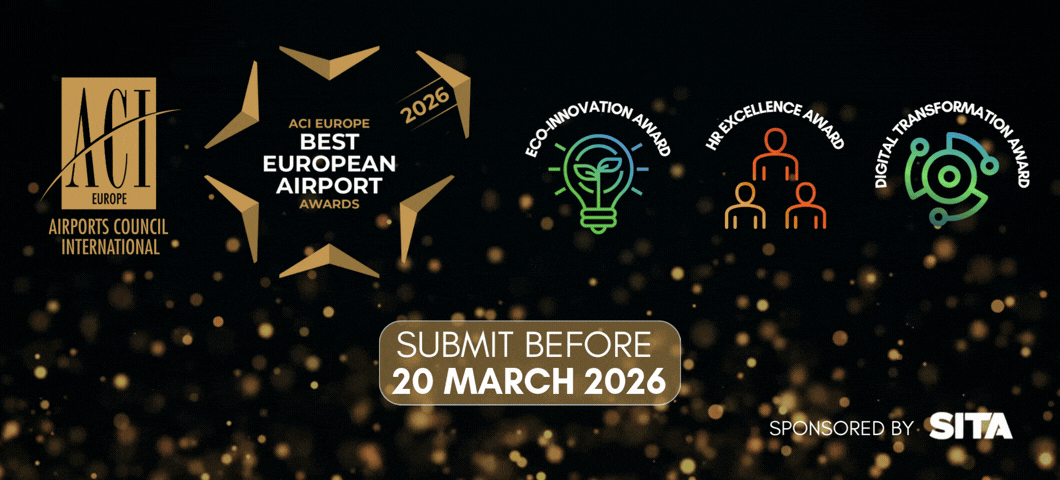
ACI EUROPE and EU Green Project Stargate host the “Hydrogen Airports Conference” at Brussels Airport
On 28th November, in collaboration with EU Green Project Stargate – an ambitious initiative dedicated to developing innovative solutions for sustainable airports and aviation of the future – Brussels Airport, and To70, ACI EUROPE hosted the “Hydrogen Airports Conference” at Brussels Airport.
The conference brought together industry leaders and experts who shared their knowledge and discussed the integration of hydrogen technologies in airport operations and infrastructure. By focusing on both the challenges and opportunities presented by hydrogen-powered ground support equipment and aircraft, the conference highlighted the importance of collaboration, and shared valuable insights for enabling airports to lead in this sustainable transformation within the aviation industry.
The conference opened with a morning session featuring insightful presentations. Sylvie Van den Eynde from Brussels Airport welcomed attendees. Germain Hurtado, Director of Hydrogen technologies at VINCI and AZEA ACI co-chair, provided updates on incorporating hydrogen into current airport infrastructure. Laura Cuss, Programme Director of the Hydrogen Capability Network, gave an overview of Jet Zero outcomes on hydrogen aircraft and airports. Additionally, European sustainable airport leaders from Aéroports de Paris, Brussels Airport, and Schiphol Group, including Blandine Landfried, Christel Vandenhouten, and Fokko Kroesen, discussed EU Green Deal projects and their challenges with hydrogen systems at airports.
The subsequent session focused on hydrogen ground support equipment (GSE). It was moderated by Alexandros Ouzounopoulos from ACI EUROPE with contributions from Julien Saleix of Plug Power, Jan Bot from Zepp Solutions, Mildred Dauphin of Groupe Europe Handling, and Germain Hurtado from VINCI Airports Group. The discussion centred around the transition to hydrogen as a new fuel for vehicles like trucks and baggage loaders, highlighting the need for collaboration among various stakeholders.
The final panel delved into the integration of hydrogen-powered aircraft at airports. It featured Vincent de Haes from To70, Marjorie Bevon of Universal Hydrogen, Nicolas Landrin from Airbus, Lena Wennberg of Swedavia Airports, Daan van Dijk from Rotterdam The Hague Airport, Blandine Landfried of Aéroports de Paris, and Diego Babuder from EasyJet. They provided insights from startups and scaleups retrofitting aircraft, discussing the preparations necessary for this new propulsion technology.
The “Hydrogen Airports Conference” highlighted that while airports are already electrifying operations as part of their green transformation, hydrogen ground support equipment could be a viable alternative, depending on each airport’s characteristics. The technology is mature, but due to high costs, financial support at national and European levels is critical for broader adoption of hydrogen GSEs.
Looking ahead, the first electric and hydrogen aircraft are expected to operate commercially before the end of 2030. As short-term challenges, the need for a regulatory framework for the new zero-emissions aircraft and the need to finance the production ramp-up, were identified as the main ones. In the long term, access to green and affordable energy for aviation should be guaranteed, while governments should include aviation when defining their national hydrogen strategies. Airports should be in close contact with all the stakeholders of the sector and have an aligned timeline to ensure infrastructure is ready to support the new types of aircraft.
Discover more about EU Green Project Stargate.



